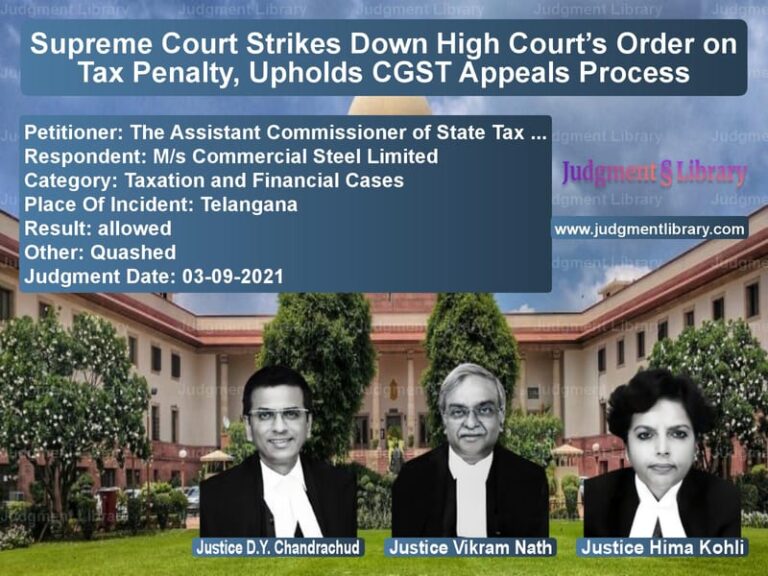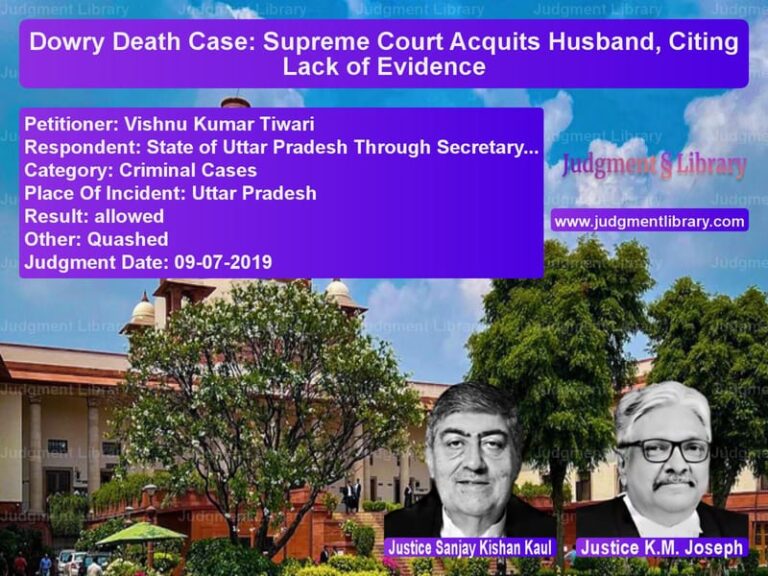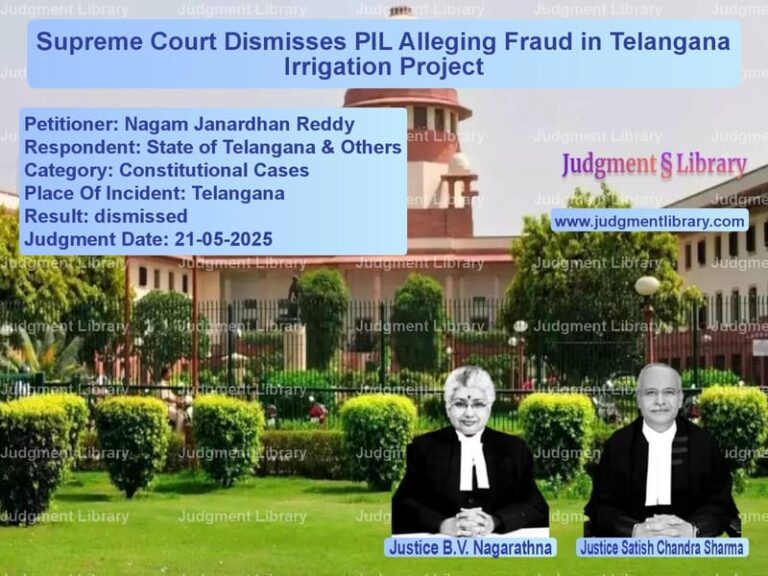Supreme Court Rules Movie Trailers Do Not Create Contractual Obligation Under Consumer Law
The case of Yash Raj Films Private Limited vs. Afreen Fatima Zaidi & Anr. is a landmark judgment addressing the legal implications of promotional movie trailers. The Supreme Court was called upon to determine whether the absence of a song shown in a movie trailer but not included in the final film constituted an ‘unfair trade practice’ under the Consumer Protection Act, 1986.
Background of the Case
The appellant, Yash Raj Films Private Limited, is a well-known film production house that produced the movie ‘Fan’ in 2016. Before the release of the movie, a promotional trailer was circulated on television and online, featuring a song titled ‘Jabra Fan’. However, when the movie was released in theaters, the song was absent from the final cut.
Read also: https://judgmentlibrary.com/supreme-court-upholds-property-rights-in-landmark-civil-dispute/
The respondent, Afreen Fatima Zaidi, a school teacher from Aurangabad, watched the promotional trailer and decided to take her family to watch the movie, expecting to see the song in the film. She filed a consumer complaint, alleging:
- She was misled into watching the movie because of the promotional trailer.
- The absence of the song caused mental agony and disappointment.
- Yash Raj Films engaged in an unfair trade practice by using the song for marketing but not including it in the movie.
She sought Rs. 60,550 in damages for mental harassment.
Legal Proceedings
- The District Consumer Redressal Forum dismissed the complaint on April 29, 2016, stating that there was no consumer-service provider relationship.
- The State Commission reversed this ruling on September 22, 2017, holding that Yash Raj Films had engaged in an unfair trade practice by misleading consumers.
- The National Consumer Disputes Redressal Commission (NCDRC) upheld the State Commission’s ruling on February 18, 2020, concluding that the trailer created an implied promise that the song would be part of the movie.
- The appellant, Yash Raj Films, then approached the Supreme Court.
Arguments by the Appellant (Yash Raj Films)
- Movie trailers are a form of commercial speech protected under Article 19(1)(a) of the Constitution.
- A promotional trailer is not a legally binding contract.
- The creative process allows for changes between marketing and final content.
- Including or excluding a song does not amount to a deficiency in service.
Arguments by the Respondents (Afreen Fatima Zaidi)
- The trailer created an expectation that the song would be in the movie.
- The absence of a disclaimer misled viewers.
- Moviegoers are paying consumers and should receive what was advertised.
Supreme Court’s Analysis and Judgment
The Supreme Court found multiple flaws in the consumer courts’ reasoning:
- Movie trailers do not create contractual obligations: “A trailer is meant to promote the movie and does not constitute an offer or promise under contract law.”
- No deficiency in service: “The service provided is the screening of a movie. The absence of a song does not affect the core service.”
- No unfair trade practice: “An unfair trade practice requires an intent to deceive. There is no evidence that the trailer was used to manipulate consumer decisions.”
The Court ruled:
“The High Court’s decision is legally unsustainable. A movie trailer does not form a contract with the audience, nor does it create a legal obligation to include every scene or song in the final movie.”
Supreme Court’s Final Order
- The appeal by Yash Raj Films was allowed.
- The NCDRC and State Commission’s orders were set aside.
- The consumer complaint was dismissed.
Legal Implications of the Judgment
- Movie trailers are not legally binding advertisements.
- Consumer expectations do not create contractual rights.
- Unfair trade practice requires an intent to deceive.
- Creative content decisions remain at the discretion of filmmakers.
Conclusion
The Supreme Court’s ruling clarifies the legal status of promotional trailers and ensures that creative expressions are not unnecessarily subjected to consumer law. It reinforces the principle that advertisements must not be misleading but also protects artistic freedom.
Petitioner Name: Yash Raj Films Private Limited.Respondent Name: Afreen Fatima Zaidi & Anr..Judgment By: Justice Pamidighantam Sri Narasimha, Justice Aravind Kumar.Place Of Incident: Aurangabad, Maharashtra.Judgment Date: 22-04-2024.
Don’t miss out on the full details! Download the complete judgment in PDF format below and gain valuable insights instantly!
Download Judgment: yash-raj-films-priva-vs-afreen-fatima-zaidi-supreme-court-of-india-judgment-dated-22-04-2024.pdf
Directly Download Judgment: Directly download this Judgment
See all petitions in Consumer Rights
See all petitions in Contract Disputes
See all petitions in unfair trade practices
See all petitions in Judgment by P.S. Narasimha
See all petitions in Judgment by Aravind Kumar
See all petitions in allowed
See all petitions in Quashed
See all petitions in supreme court of India judgments April 2024
See all petitions in 2024 judgments
See all posts in Civil Cases Category
See all allowed petitions in Civil Cases Category
See all Dismissed petitions in Civil Cases Category
See all partially allowed petitions in Civil Cases Category







